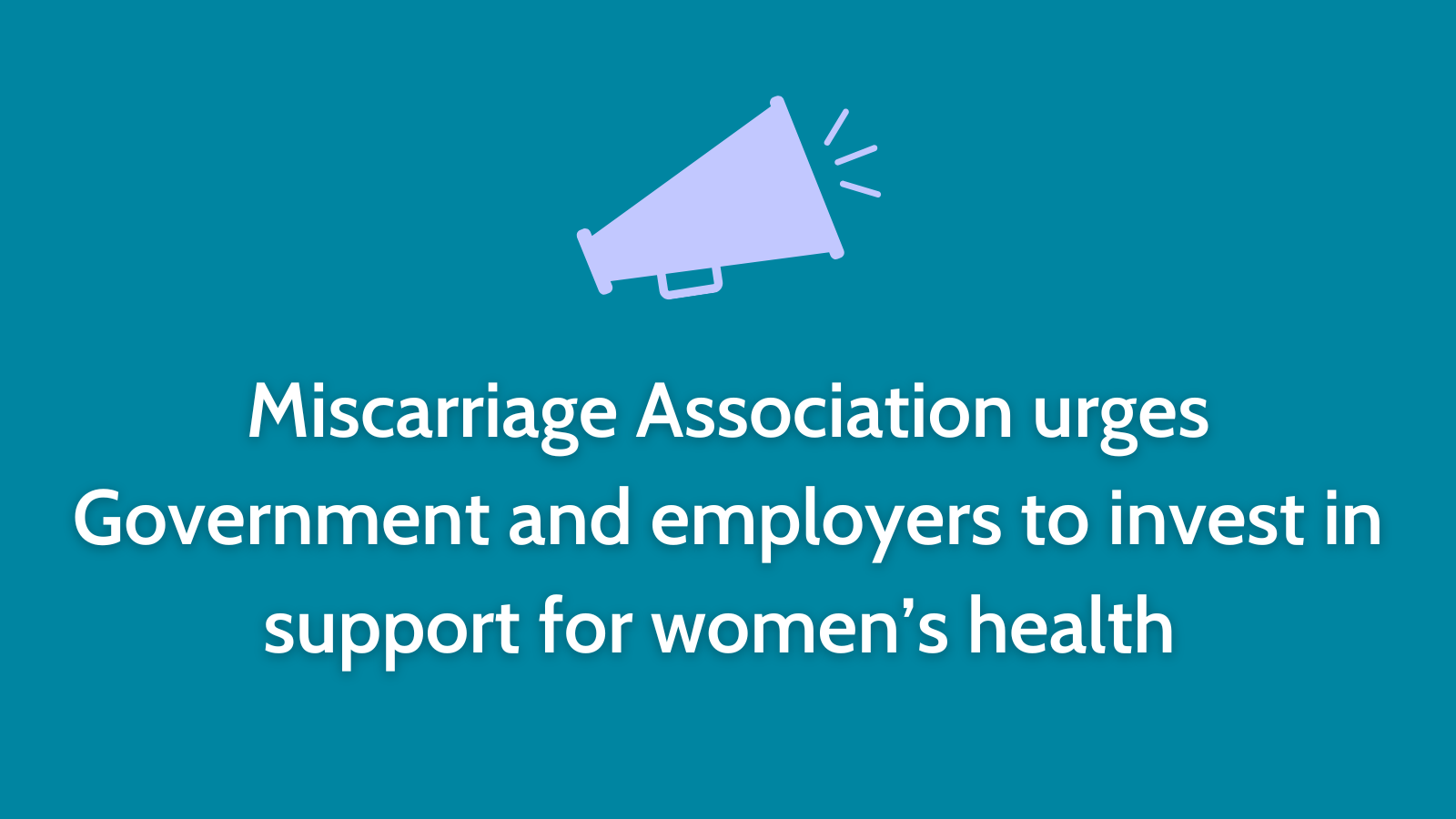New quality standard on miscarriage care
10th September 2014
The National Institute for Health and Care Excellence (NICE) has today launched a new quality standard on the diagnosis and management of ectopic pregnancy and miscarriage. Its key message: that appropriate referrals, timely investigations and early diagnosis will help to improve care and could potentially save lives.
We warmly welcome this quality standard, highlighting as it does the importance of prompt high quality care for women experiencing pain and bleeding in early pregnancy.
While there are many units which offer swift access to assessment and diagnosis, there are also real gaps, especially in hospitals with limited specialist resources. Unfortunately this means there are still cases every year of women dying due to an undiagnosed ectopic pregnancy and we hope that the new standard will minimise this risk.
Equally important is the drive for compassionate care and clear information as part of good clinical practice. That can make all the difference to women and their partners at a very distressing and vulnerable time.
NICE issued the following press release on 10 September 2014.
PRESS RELEASE
Prompt diagnosis of ectopic pregnancy and miscarriage vital to good care, says NICE
Women who are referred to early pregnancy assessment services with a suspected ectopic pregnancy or miscarriage should be seen by that service within at least 24 hours, healthcare professionals are being advised.
However, the National Institute for Health and Care Excellence (NICE) is also reminding the NHS that some women may need to be referred directly to their local A&E department as an emergency depending on their symptoms.
Its new quality standard says that appropriate referrals, timely investigations and early diagnosis will help to improve care and could potentially save lives.
Hundreds of thousands of babies are born in England and Wales every year – nearly three-quarters of a million were delivered in 2012. Most pregnancies progress successfully, but as many as 1 in 5 will end in miscarriage during the first trimester. This equates to about 143,000 in England each year.
Ectopic pregnancy occurs when the embryo implants outside the womb, often in the fallopian tube. It is relatively uncommon – figures suggest it happens in roughly 11 per 1,000 pregnancies. Symptoms include pain and/or bleeding, or are non-specific and therefore difficult to spot. These pregnancies are never viable.
If ectopic pregnancies go undiagnosed, the fallopian tube can burst causing serious complications. If untreated, ectopic pregnancies can be fatal. Between 2006 and 2008, more than 35,000 women were diagnosed with an ectopic pregnancy – 6 of them died. Four of these deaths may have been associated with inadequate care.
Professor Gillian Leng, Deputy Chief Executive and director of health and social care at NICE, said: “To think that you might be losing your baby, either through miscarriage or ectopic pregnancy, is terrifying. It can have a significant impact on the health and wellbeing of the woman and her family.
“It’s important that these women are seen as soon as possible – a long delay could have a potentially devastating effect. It’s something we originally recommended in 2012 and have identified as a key area still in need of improvement.”
The new quality standard also says that women referred to an early pregnancy assessment service with a suspected ectopic pregnancy or miscarriage should be given a transvaginal ultrasound scan to look for any problems. This type of ultrasound scan provides the best quality imaging.
It also advises doctors and nurses that a second assessment should be offered to women with a suspected miscarriage before a diagnosis is confirmed and appropriate treatment is offered.
Belinda Phipps, NCT Chief Executive said: “We welcome this new standard which stresses the importance of women in this situation being seen as quickly as possible. Signs of ectopic pregnancy, especially, may be hard to spot, but can require emergency attention very rapidly.”
The quality standard comes after NICE published wide-ranging guidance on this issue in 2012. The standard picks out 3 key areas identified as priority areas for improvement. Both documents aim to help the NHS provide consistent and effective care to women with either a suspected or diagnosed ectopic pregnancy or miscarriage.
Belinda Phipps added: “The enhanced guidance will improve the physical care offered to women who suffer an unwanted loss of a pregnancy. It is also crucial to remember that the woman and her partner will need emotional support – both now and for future pregnancies.”

